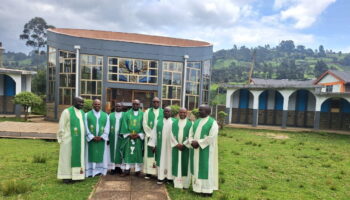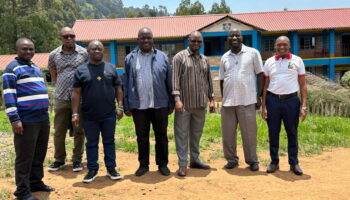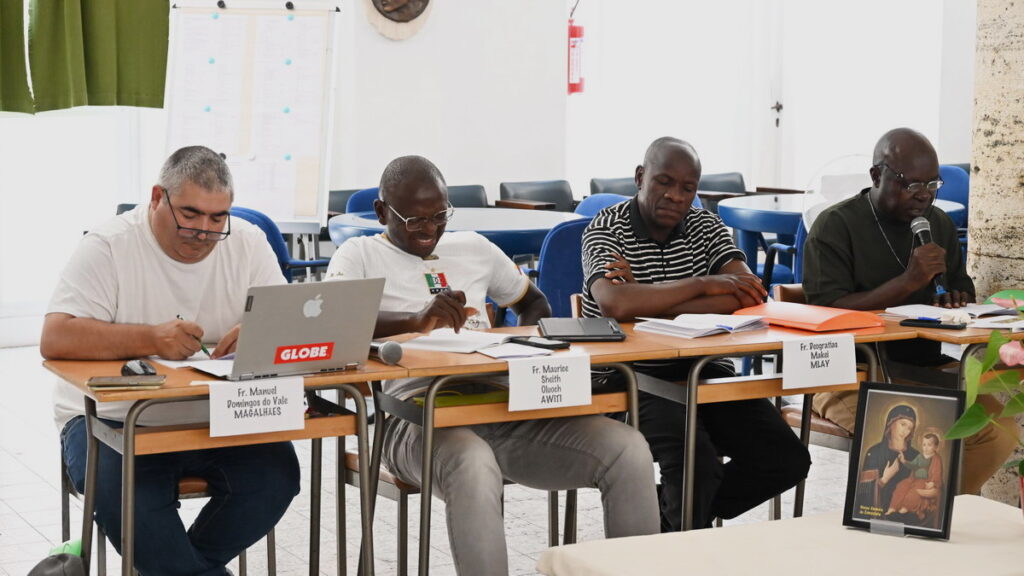
“Human life is a dynamic journey with different stages. Each stage brings its own challenges, crisis and transformation”, explained Fr. Romuald Uzabumwana, from the Pallottine Congregation, and a professor of Pyschology at the Gregorian University in Rome, talking about “coping with midlife crisis as a religious”.
By Deogratias Makei Mlay *
The reflection was made on September 11th, 2025 as part of the topics studied during ongoing formation course for a group of Consolata Missionaries celebrating their jubilee (25 years of priestly ordination and/or religious profession).
The professor emphasized that midlife crisis begins at around the age of 40-60 years. At this stage, we realize that we are no longer the same. The body itself begins to show some signs such as tiredness, sicknesses, psychological decline and some kind of immobility. We are not capable of doing the things which we are used to do. Therefore, midlife crisis is a time of reawakening, self-discovery and self-awareness.
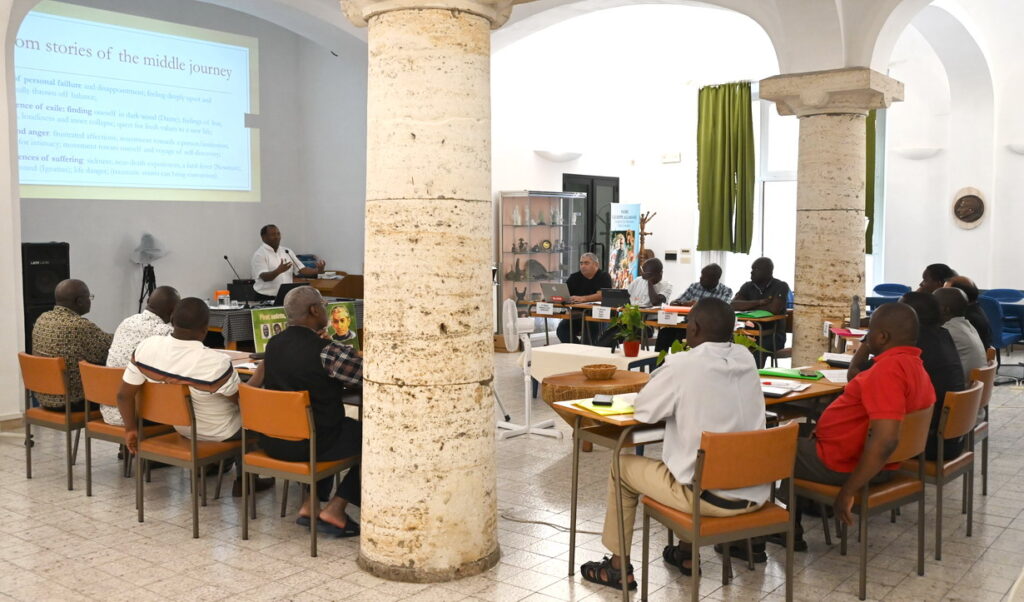
Life can be categorized into three moments which are the first journey, the second journey and the old age. The first stage of life is known as the upward slope (First journey). This is a stage whereby a person is full of energy, self-confidence, commitment and strives for success or achievement. In this stage, what matters most is what I can do. At his stage, the priest or religious is very young and is full of life. He/she feels that can do anything and he/she knows everything.
The second stage is known as the downward slope (Second journey). It begins at around the age of 40 – 60. This stage comes with ageing, and death comes into question. The person undergoing this stage starts feeling vulnerable. At this point, a priest or religious is unable to perform the services he/she used to do, he/she is no longer strong as used to be, suffering comes in, and even some members of his/her family such as father or mother die. It’s a period of time to pay attention to what is happening.
Read also: Insights for discerning the future prospects of Consecrated Life
Starting afresh from Christ: reviving the fire of the call
Course G25: General Analysis of Consecrated Life and of the Institute
“The Word of God as a Guide to Consecrated Life”
The second ongoing formation course begins in Rome
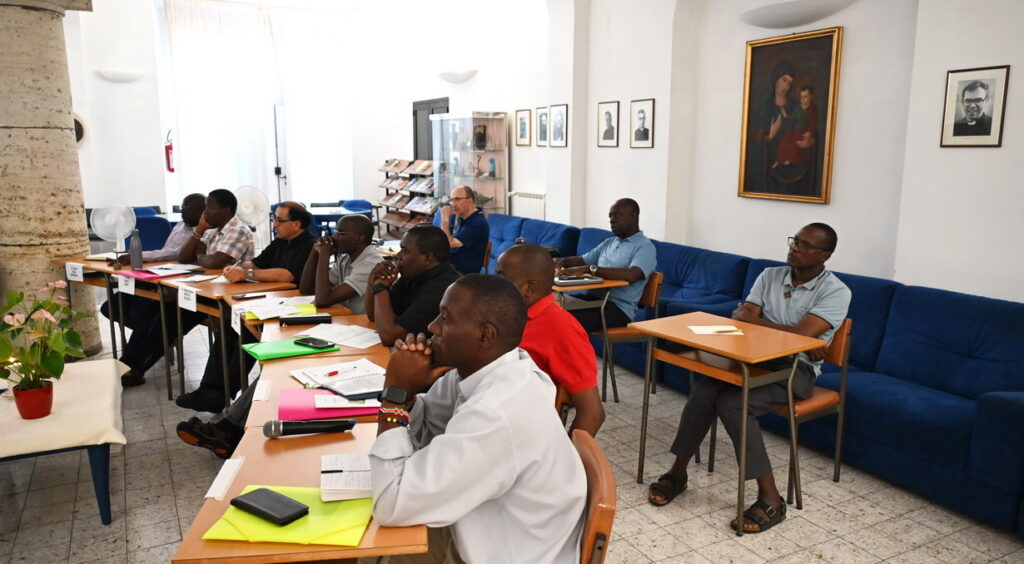
A religious person or a priest may face the following challenges during midlife crisis such as loss of orientation, sense of dissatisfaction, feeling compelled to make another experiment in life or quitting religious life or priesthood, living a double life (problems of infidelity), and a voyage of self-exploration and self-discovery.
Fr. Romuald stressed that from his personal experience of accompanying people in midlife crisis, he noticed in many of these people a strong feeling of personal failure, experience of exile, frustrated affections, as well as experiences of suffering. He emphasized that religious persons undergoing midlife crisis should face this crisis in a positive way knowing that if midlife crisis is faced positively, it can lead to personal transformation and personal development.
The professor presented two ways of coping with midlife crisis, one positive and the other negative. The negative (maladaptive) coping strategises include denial, projection, isolation, activism, addictions, compensation, withdrawal and living a double life. A person who cherishes negative adaptive strategies suffers a lot and can end up abandoning religious life or priesthood. They deny the crisis and try to cover it up with addictions such as alcohol, denial or projection, etc.
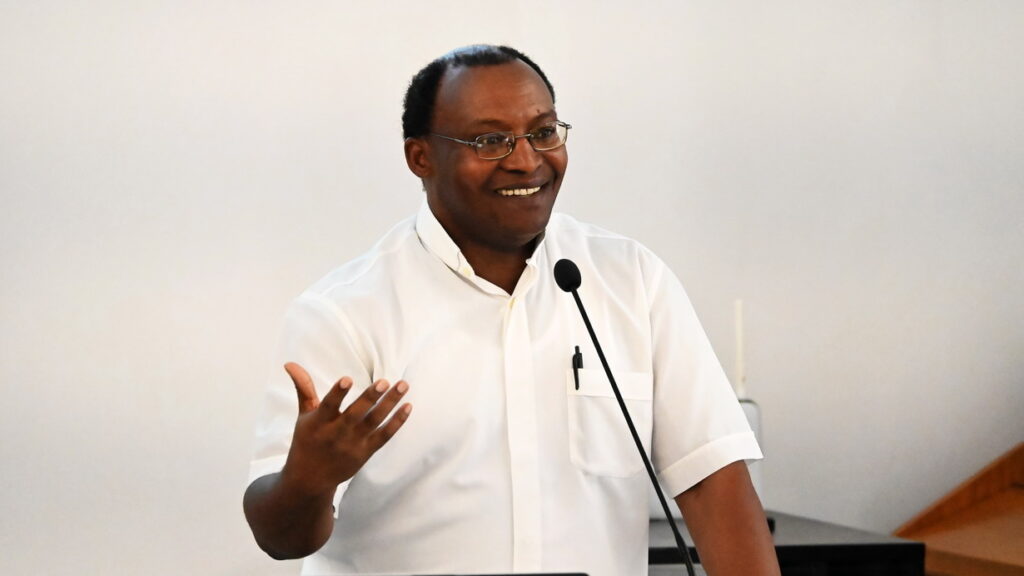
The positive coping strategises as elaborated by Fr. Romuald are as follows:
1. Self-acceptance or self-awareness. It is the ability of recognizing the changes that are starting to occur in our bodies as we age. The person needs to accept that he/she is no longer the same person.
2. Sharing the situation with trustworthy persons. Sometimes during midlife crisis, a person may feel a certain sense of disorientation. It is advisable to share this condition with a person that he/she trusts rather than keeping it to himself/herself.
3. Getting a professional support from an expert. The person undergoing this kind of crisis may seek a professional support from a psychologist or spiritual director so that he/she may be helped.
4. Rediscovering the true values. It is about going back to his/her vocation and trying to rediscover the true values which made him/her to embrace religious life. Here, the religious may embrace the cross of Christ as the true value which made him/her to join religious life.
5. Finding the meaning of the crisis: It is about identifying the root causes of the crisis. Maturity is learning to walk away from people and situations that threaten your peace of mind, self-respect, values, morals and self-worth.
6. Making a discernment before making an important life change. It is very important to make a thorough reflection before taking an abrupt change in life remembering that life without reflection is not worth living.
7. Life of prayer. Prayer, meditation, reading the word of God, seeking counsel and support from religious leaders can help a person to adjust better to crisis and other problems in life.
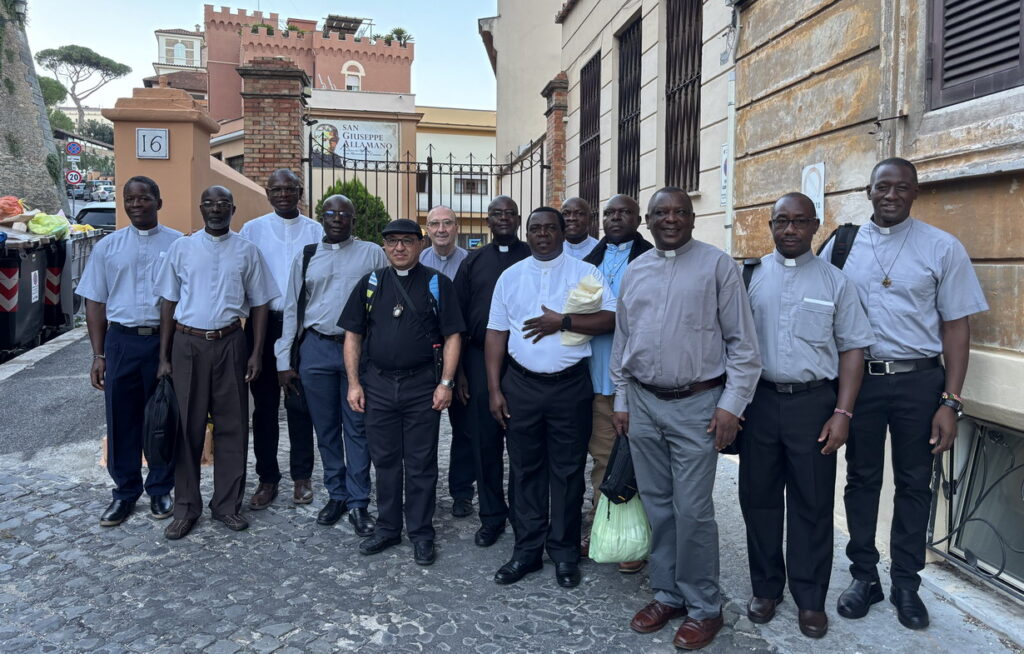
Henceforth, Fr. Romuald concluded emphasizing the need to understand that midlife crisis is there and it happens to all people in one way or another. Some are hit the hardest especially those who cannot cope with it while some pass through it easily especially those who cope with it positively.
The course in English, from September 1 to 27, 2025, is organized by the General Office for Formation, and the work is coordinated by General Councillor, Father Mathews Odhiambo Owuor and Fathers Antonio Rovelli and Ernesto Viscardi. Fifteen missionaries (14 priests and 1 brother) from Africa, Latin America, and Europe are taking part in the course at the Generalate House in Rome.
* Father Deogratias Makei Mlay, IMC, missionary in Tanzania.


